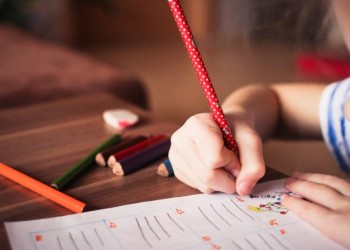With the abundance of online content, it’s easy for kids to pick and choose snippets of information to use in blogs, essays, and assignments and claim it as their own. Sometimes, kids may not realize that they are doing something wrong by copying others’ work, and sometimes actions are intentional; regardless, the consequences are the same, and it is a parent’s job to educate kids on what it takes to avoid plagiarizing.
It would certainly be ironic if we were to botch this citation, so we are choosing our words very carefully here when we say that, according to Plagiarism.org, an online site ostensibly designed “to help people all over the world prevent plagiarism and restore integrity to written work,” that many potential cases of plagiarism can be prevented by simply citing sources.
Regardless of where you stand on copying though, the fact is that the Internet makes plagiarism easy for children and college students, as we point out in Parenting High-Tech Kids: The Ultimate Internet, Web, and Online Safety Guide. Think about how simple it is to go to Wikipedia or another popular reference website, look up a subject and then copy and paste the material. Not surprisingly, swiping others’ research, words or original material and reusing it has become a widespread problem in schools, and one that can carry some serious consequences. At the very least, many teachers will automatically give students Fs on the assignment if they find out that pupils have copied or stolen someone else’s work.
Moreover, when Bay Area students at Leland High School were recently caught cheating on finals by using a password to steal copies of the test before it was given out, one student told the San Jose Mercury News that “it’s pretty much normal that kids are cheating on tests.” Numbers alone tell the tale, with the statistics on cheating today somewhat shocking. A Rutgers Business School survey reported that two-thirds of high school students admit to cheating in some form.
Considering the growing ubiquity of smartphones, it’s not a tough leap to make to see that kids are using the Internet to cheat, both in school and at home with increasing frequency as well. More than two-thirds of college students admit to using online sources when cheating. In fact, in a recent study of high-tech cheating conducted by Common Sense Media, 38% of kids aged 13-17 said they’d copied text from the Internet and passed it off as their own, and more than a third admitted to using their cell phones to cheat.36) Understanding Plagiarism and Helping Your Kids
According to NoCheating.org, nine out of ten middle-schoolers admit to copying each other’s homework, and two-thirds say they’ve cheated on exams. Fully one-fifth of boys and one quarter of girls report that cheating started for them in first grade, showing that this behavior begins at an early age. Needless to say, it’s easy to do the math here – and from a parent’s perspective, it’s hard to be pleased with how the numbers add up when it comes to the chances that their kids may be using the Internet to cheat.
Tips:
- While tools and resources such as TurnItIn, iThenticate or CheckForPlagiarism.net can help catch plagiarizers, there’s no 100% foolproof way to prevent the act of plagiarism. But you can help prevent it by actively speaking with your kids, teaching them not to do so, and explaining why stealing others’ work is wrong. Have the conversation with kids, and let them know you’re aware of the issue – the fact you’re potentially watching over their shoulder won’t be a magic cure-all for the problem, but it will provide added deterrent.
- There’s a great guide for discussing plagiarism with your children at KidsHealth.org called “What is Plagiarism?” In addition to providing an anti-plagiarism checklist, the site offers a clear definition and examples of plagiarism that are designed to be understood even by elementary school children.
- Some families allow children a brief window during which the computer and Internet may be used at the start of a homework assignment, and then require either that the computer be turned off or the Internet connection disabled for the rest of the assignment. Not only can that prevent cutting and pasting or accessing answers online, but it can also prevent other distractions. However, it’s worth noting that precluding access to online research or reference material may have potentially detrimental effects on children’s ability to complete assignments as well – let logic rule here.
- Common Sense Media suggests that kids need to learn that they must always credit a source when referencing it, and recommends talking to teachers and principals to ensure that kids understand the proper techniques for source citation. However, children should also understand just how much material is appropriate to cite – simply noting a source does not give them the right to copy content wholesale, let alone in bulk.
- Encourage your kids to double check their work for any citations or quotes contained within, and be sure to attribute them to proper sources. Also make a point of personally going back and examining the source material referenced to make sure it’s not been simply copied outright.
For more information on how to keep kids from plagiarizing, also see Parenting High-Tech Kids: The Ultimate Internet, Web, and Online Safety Guide.














